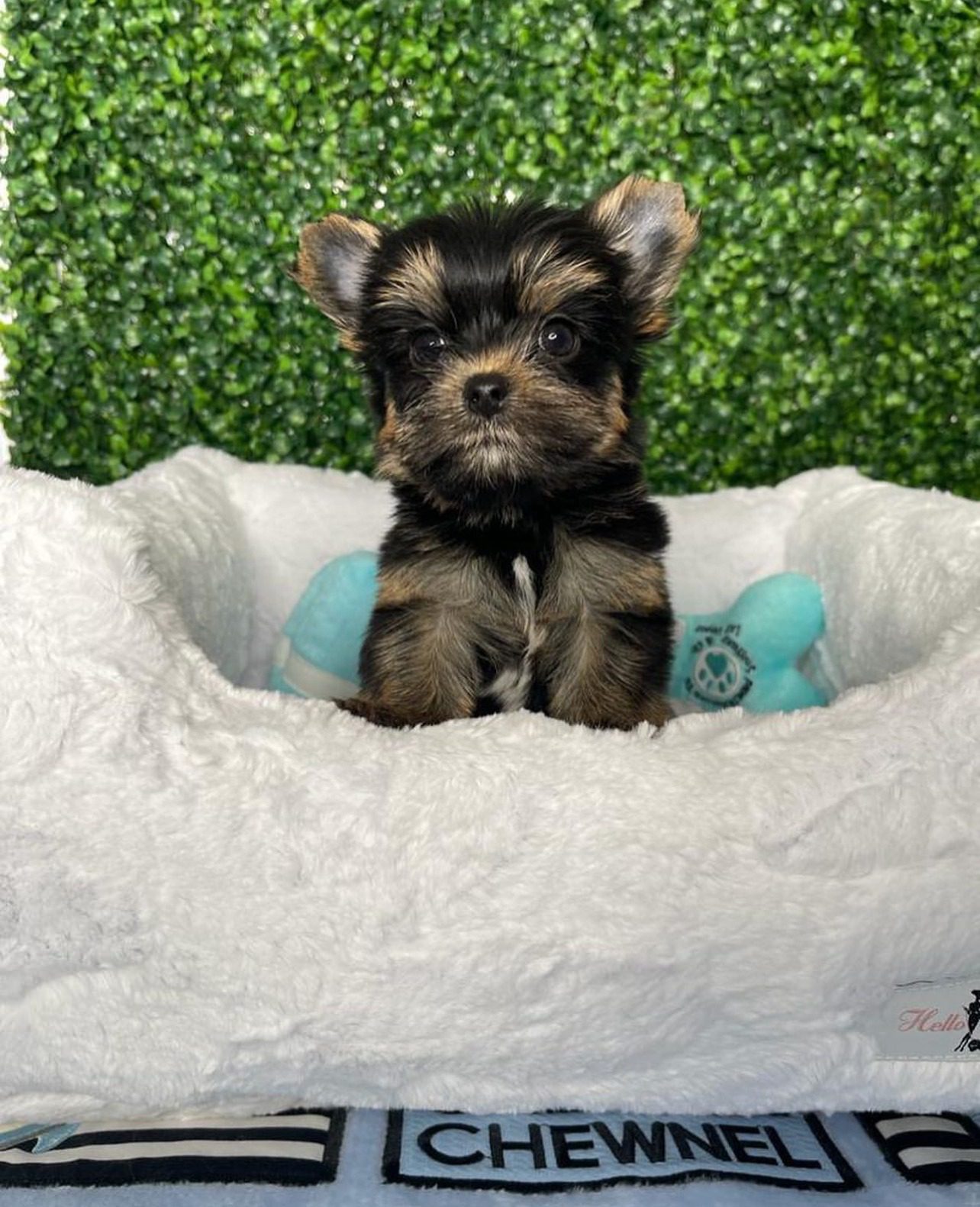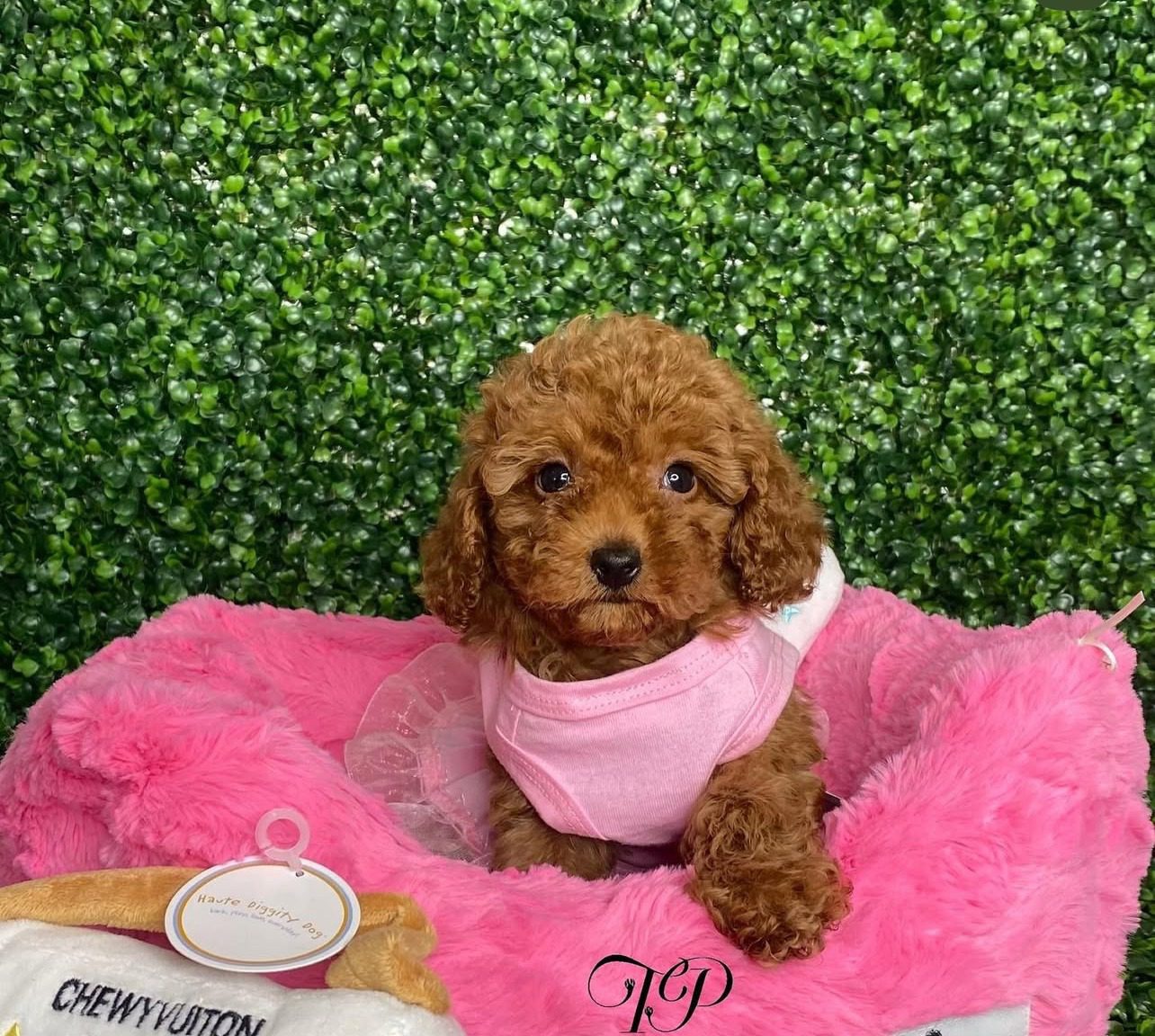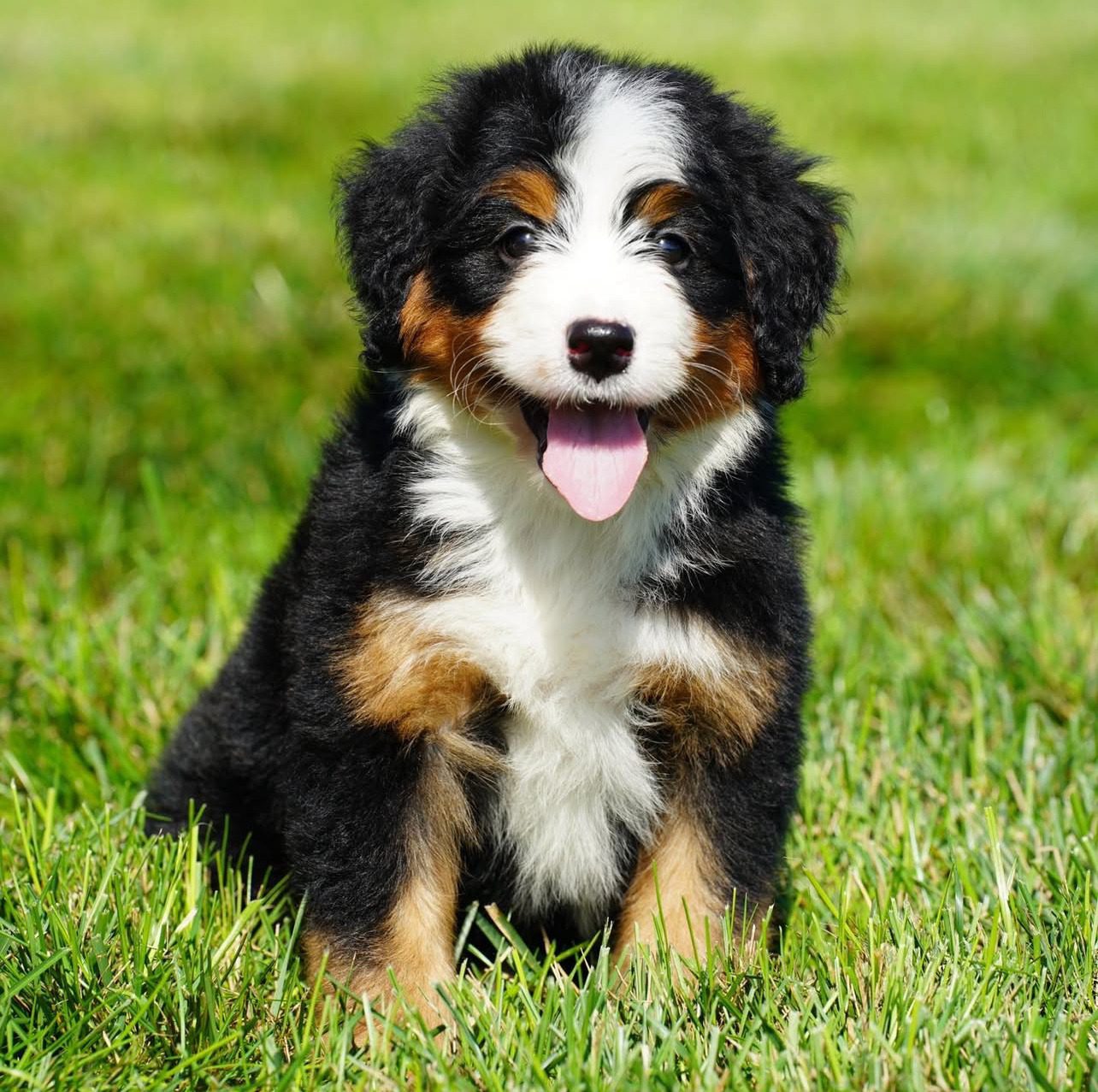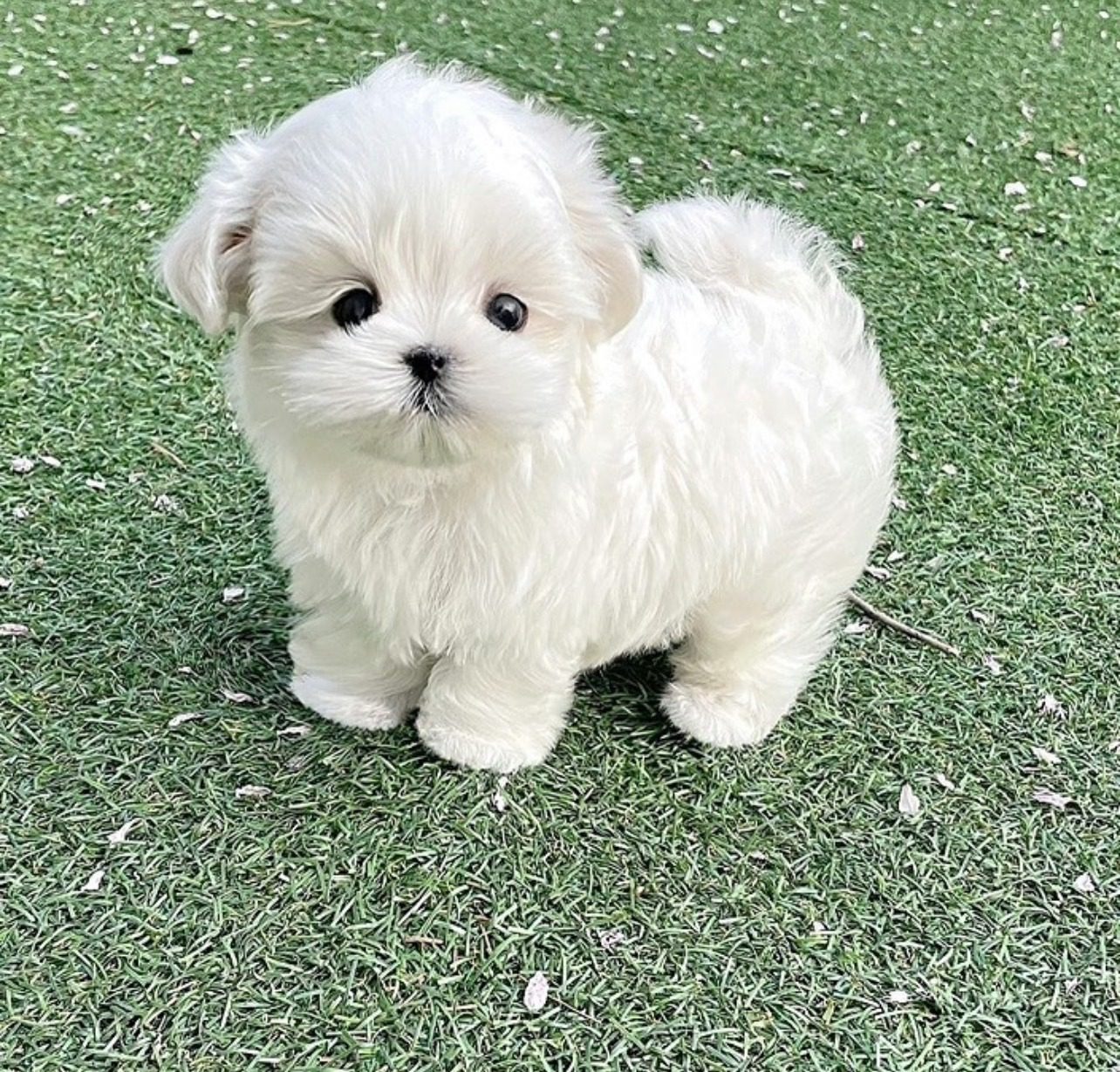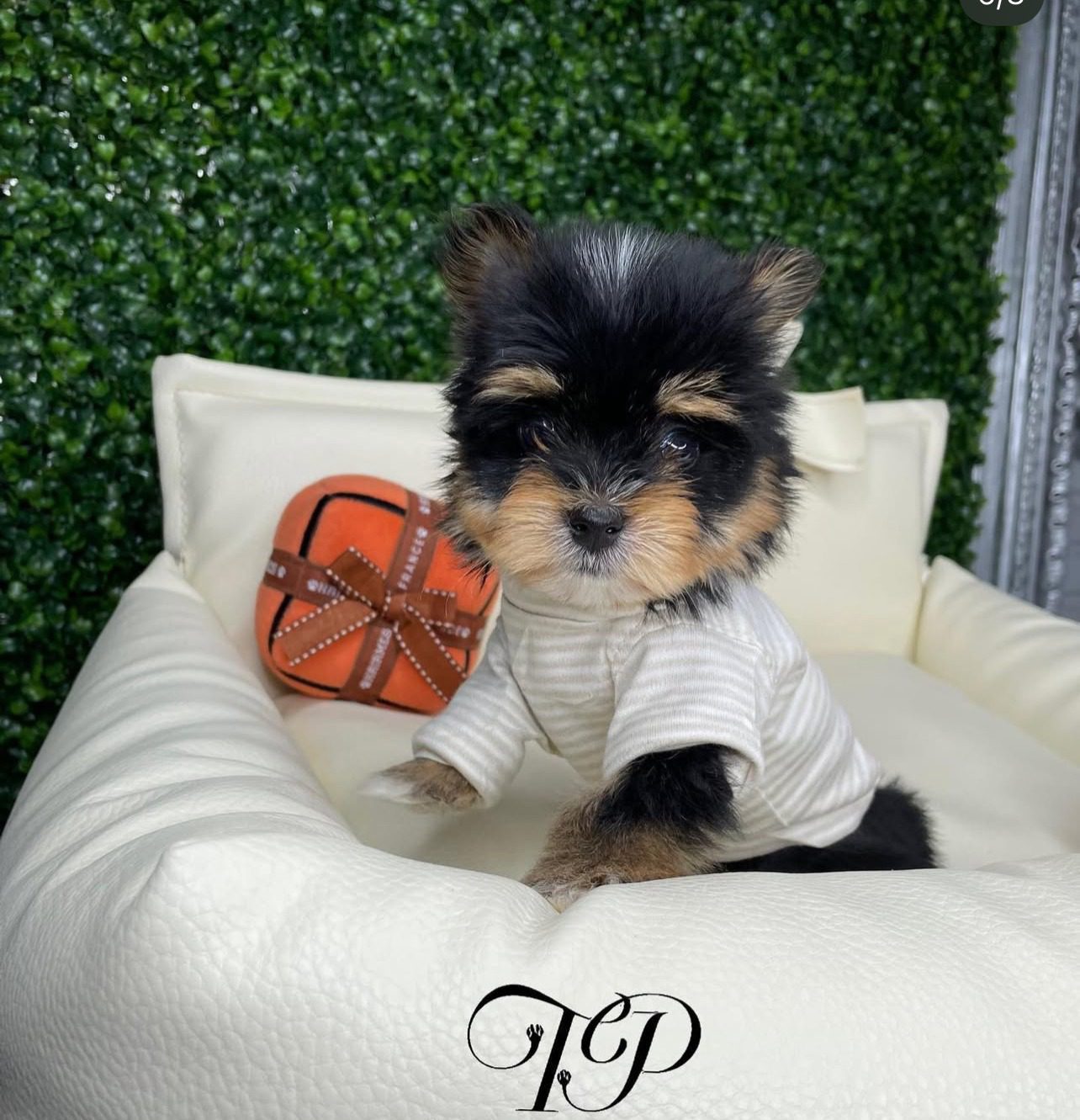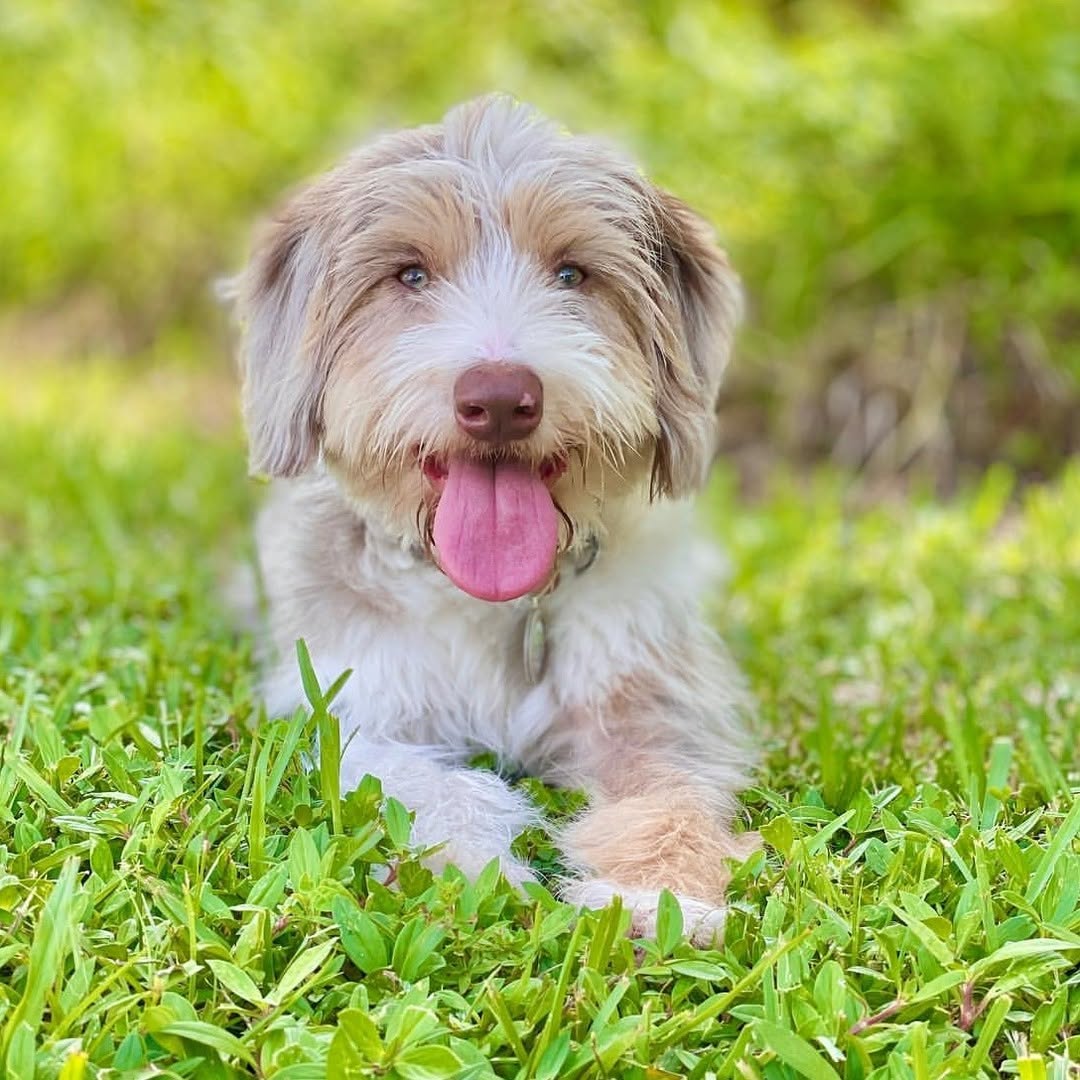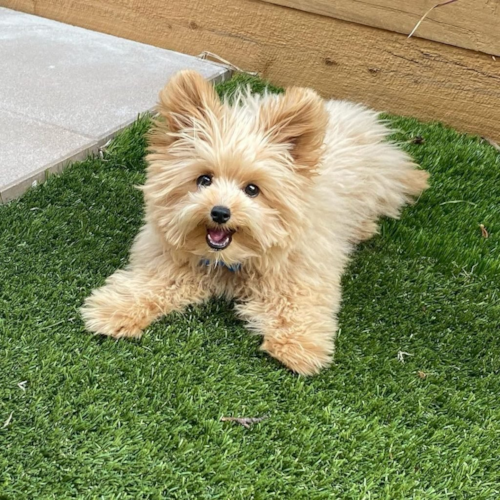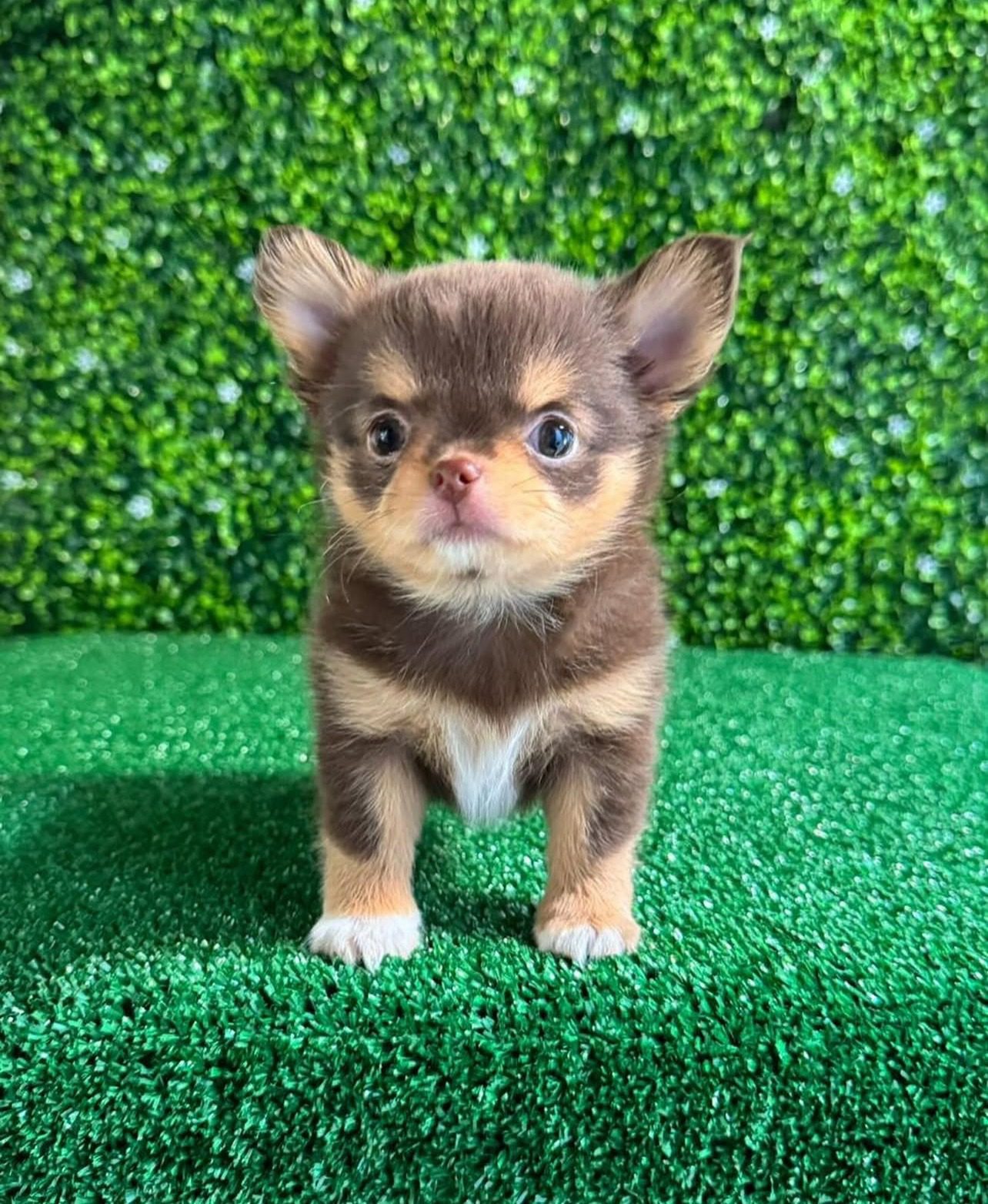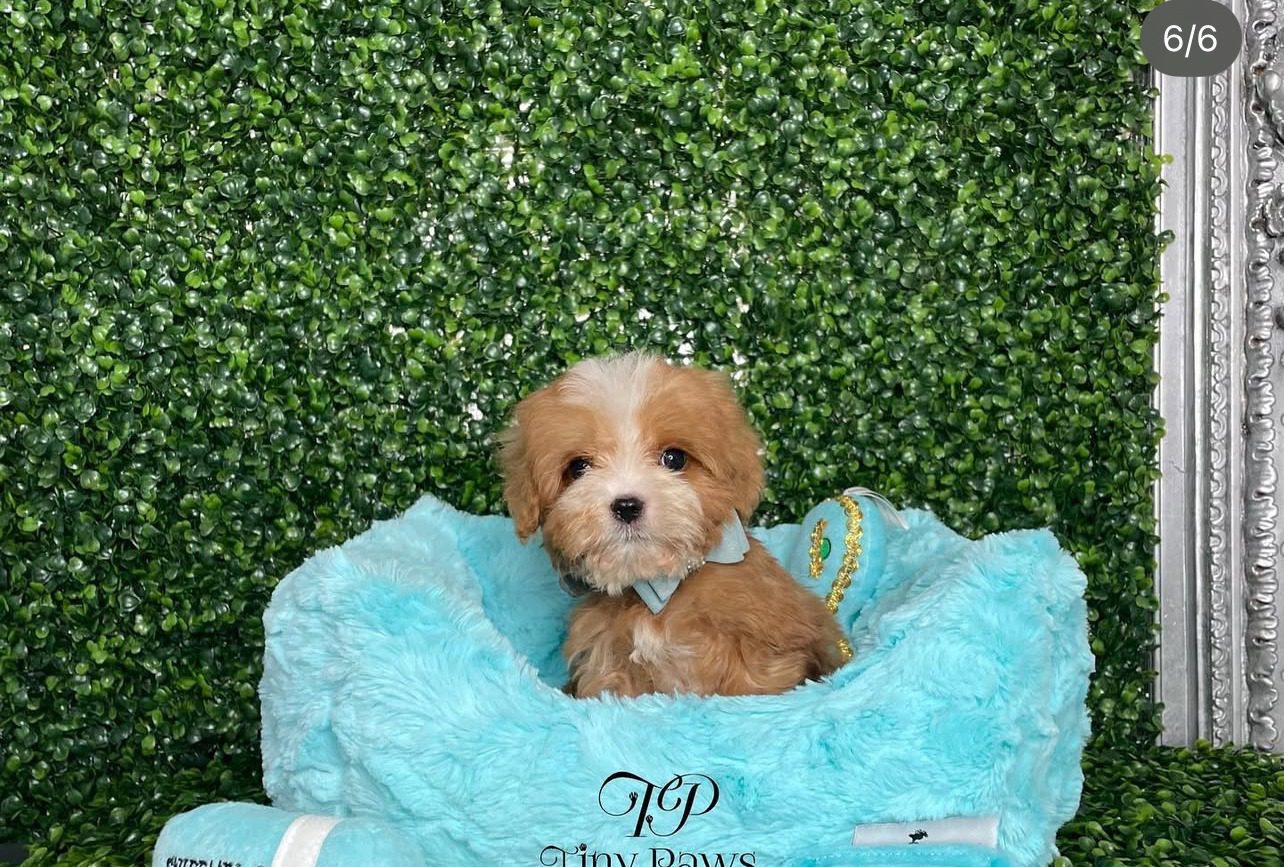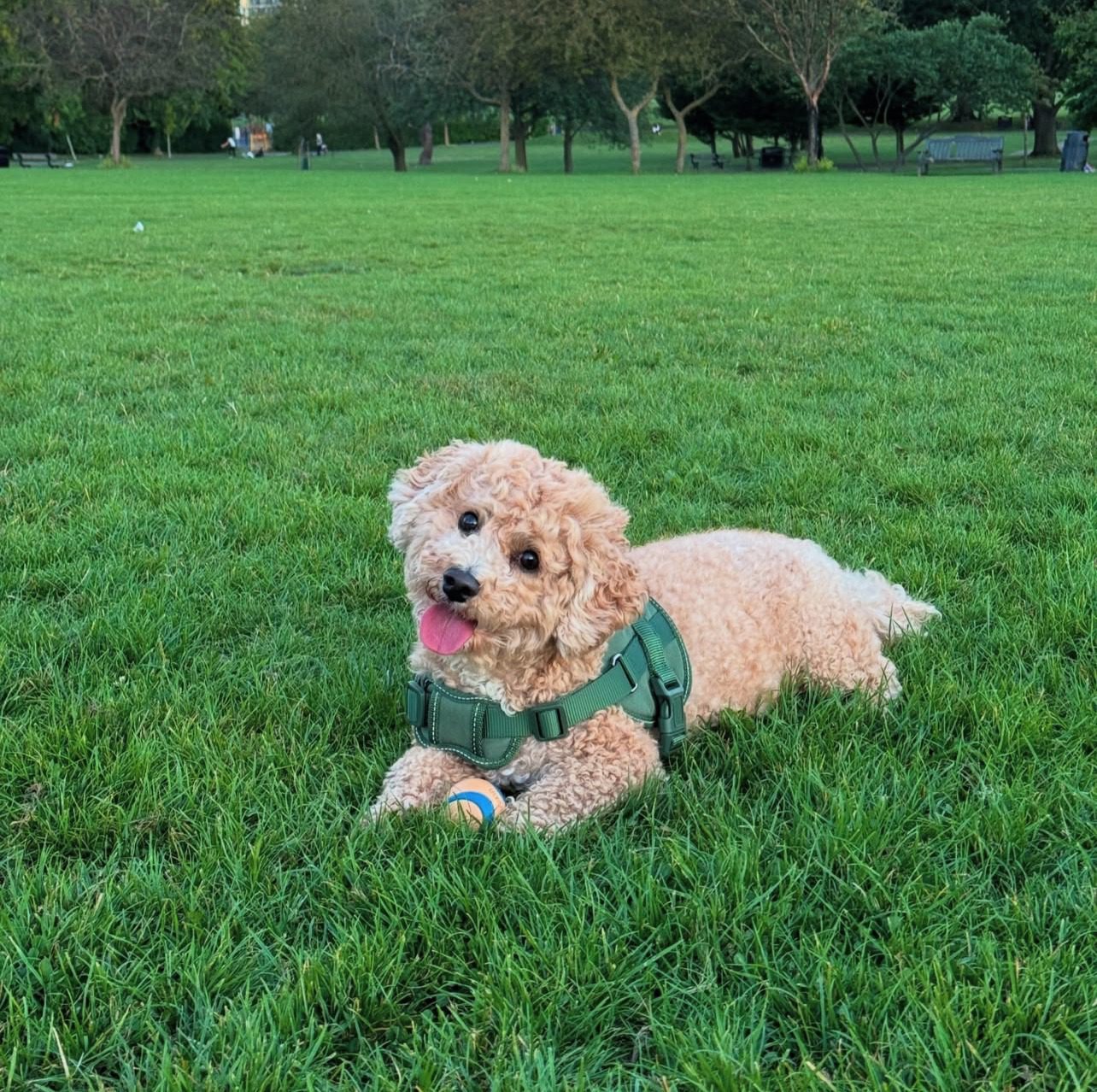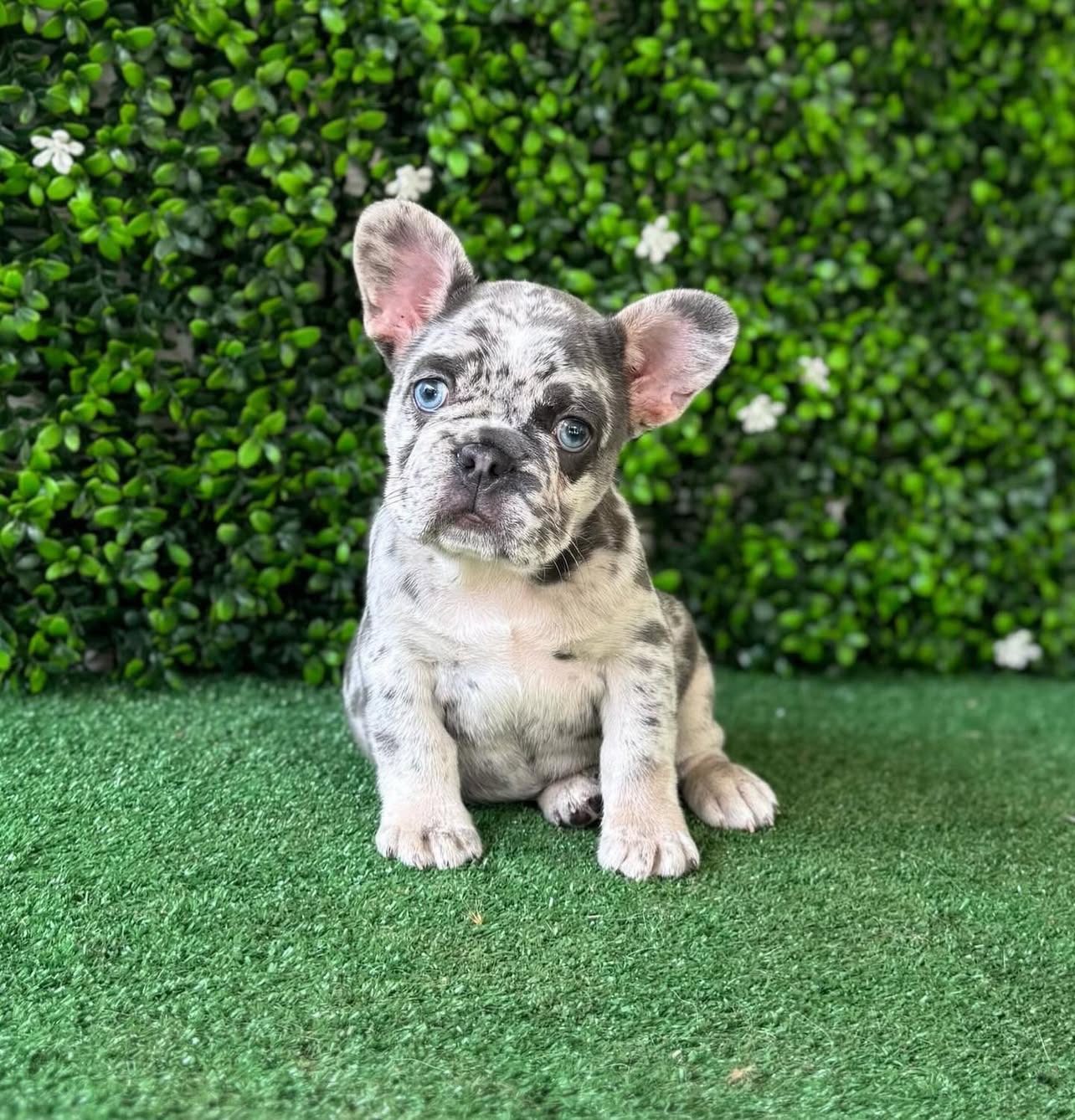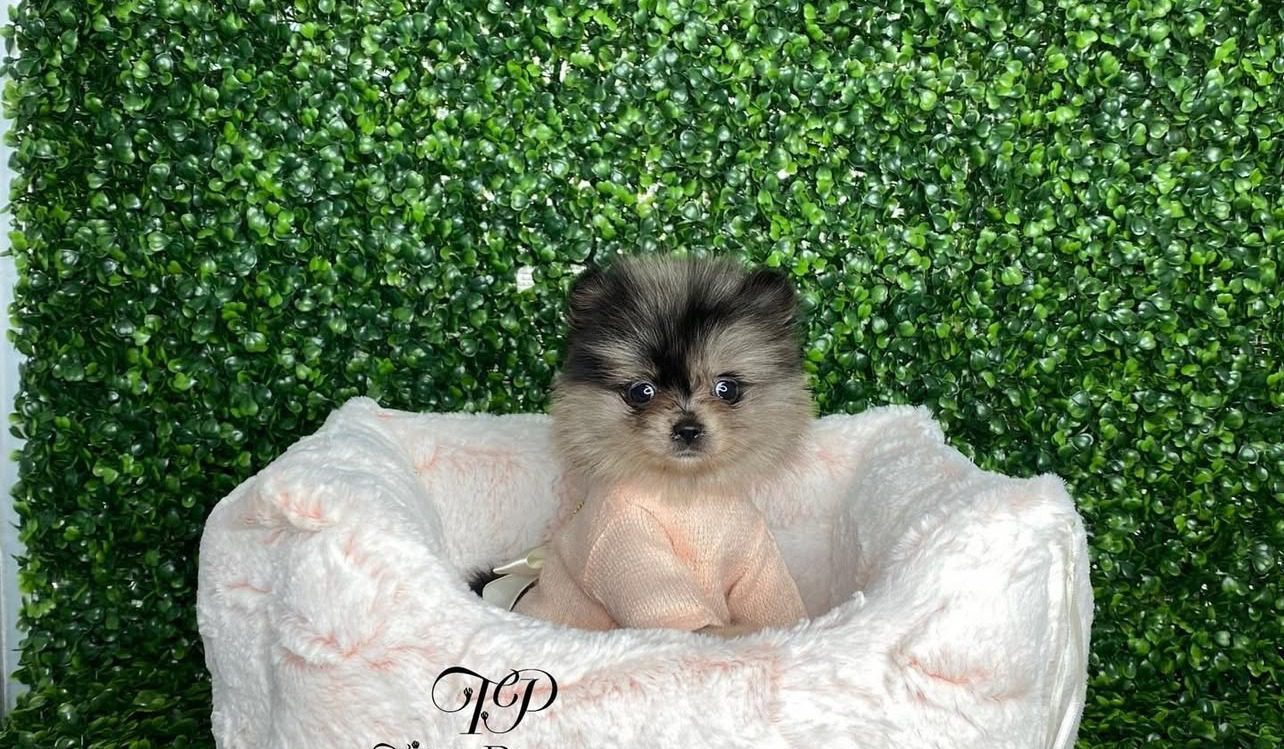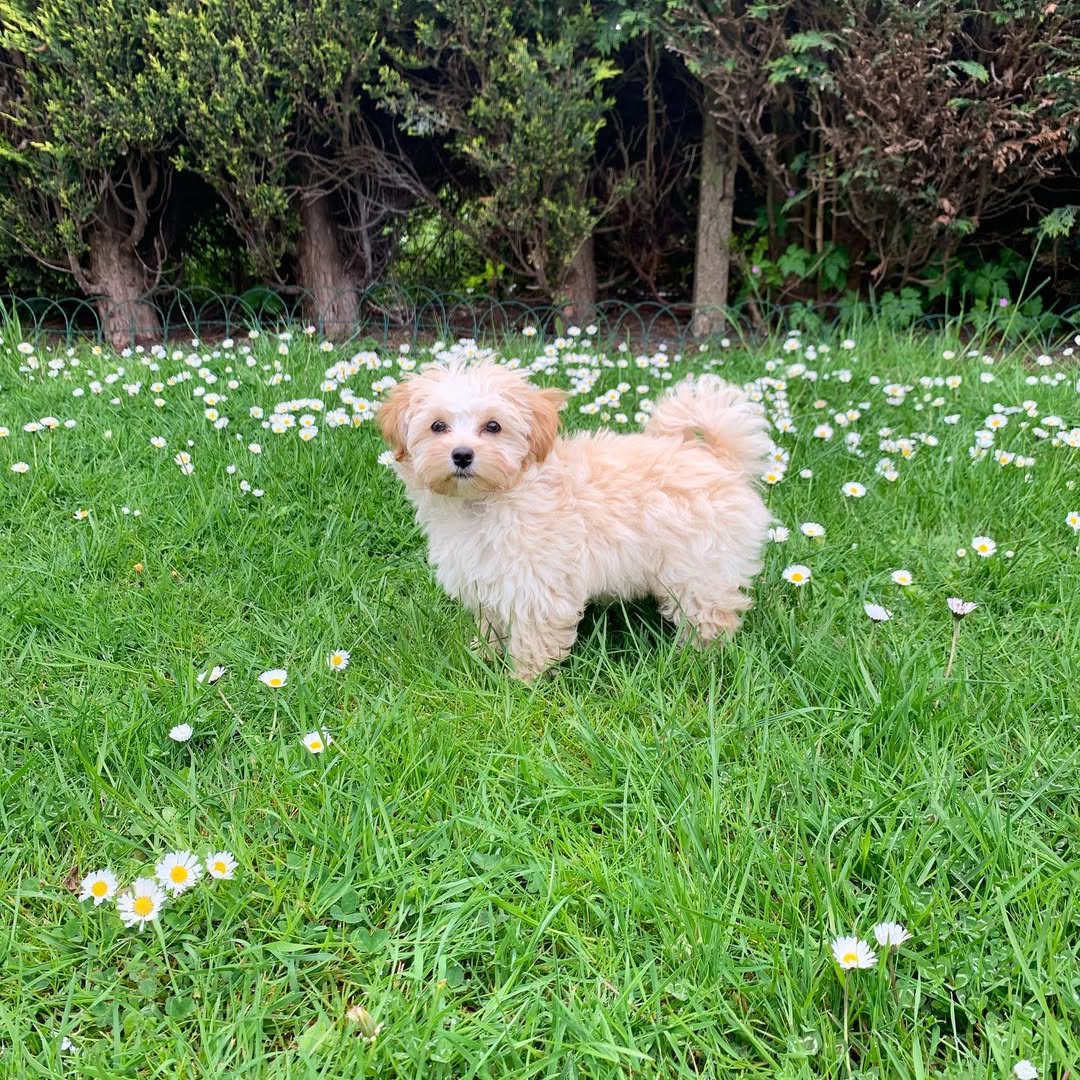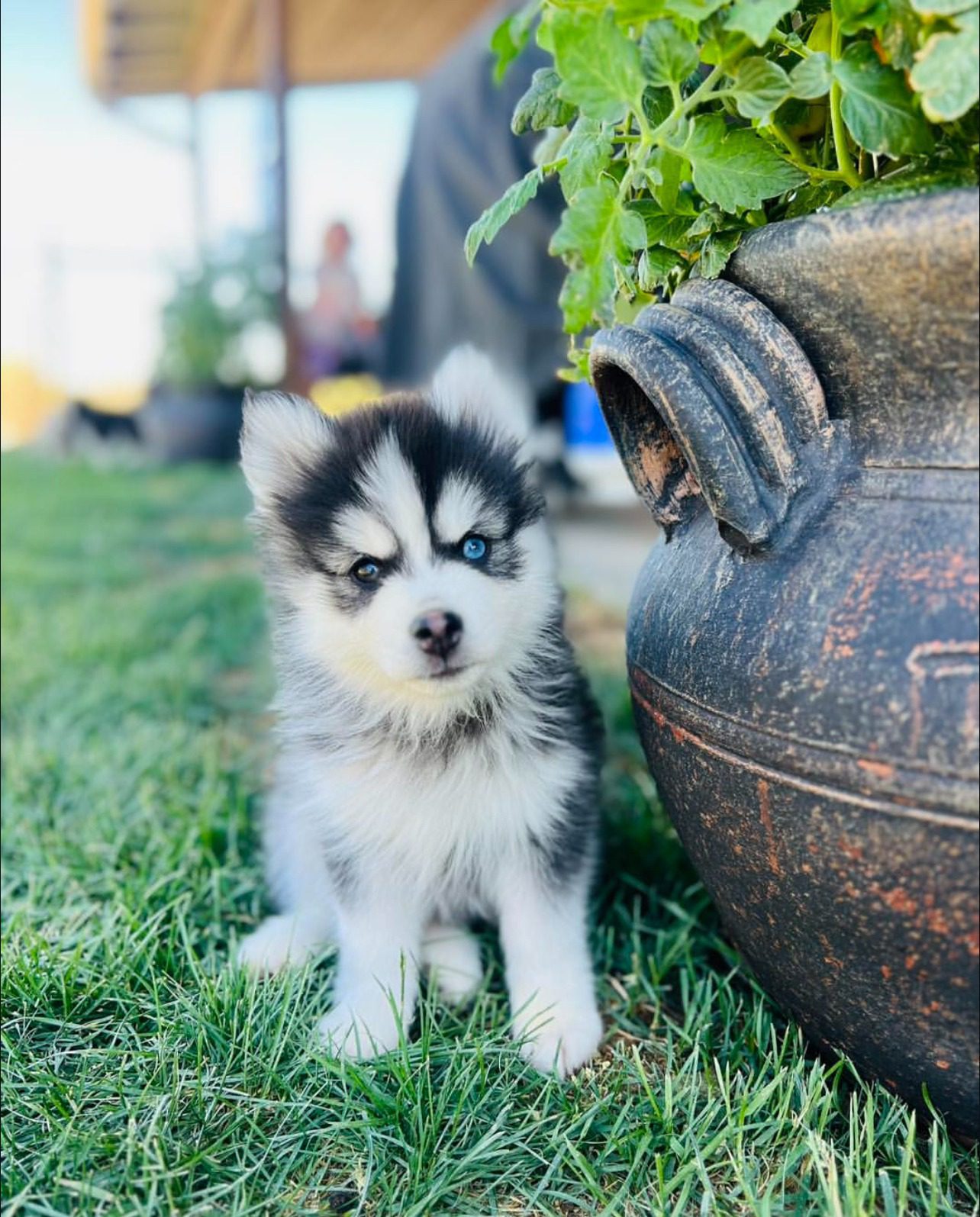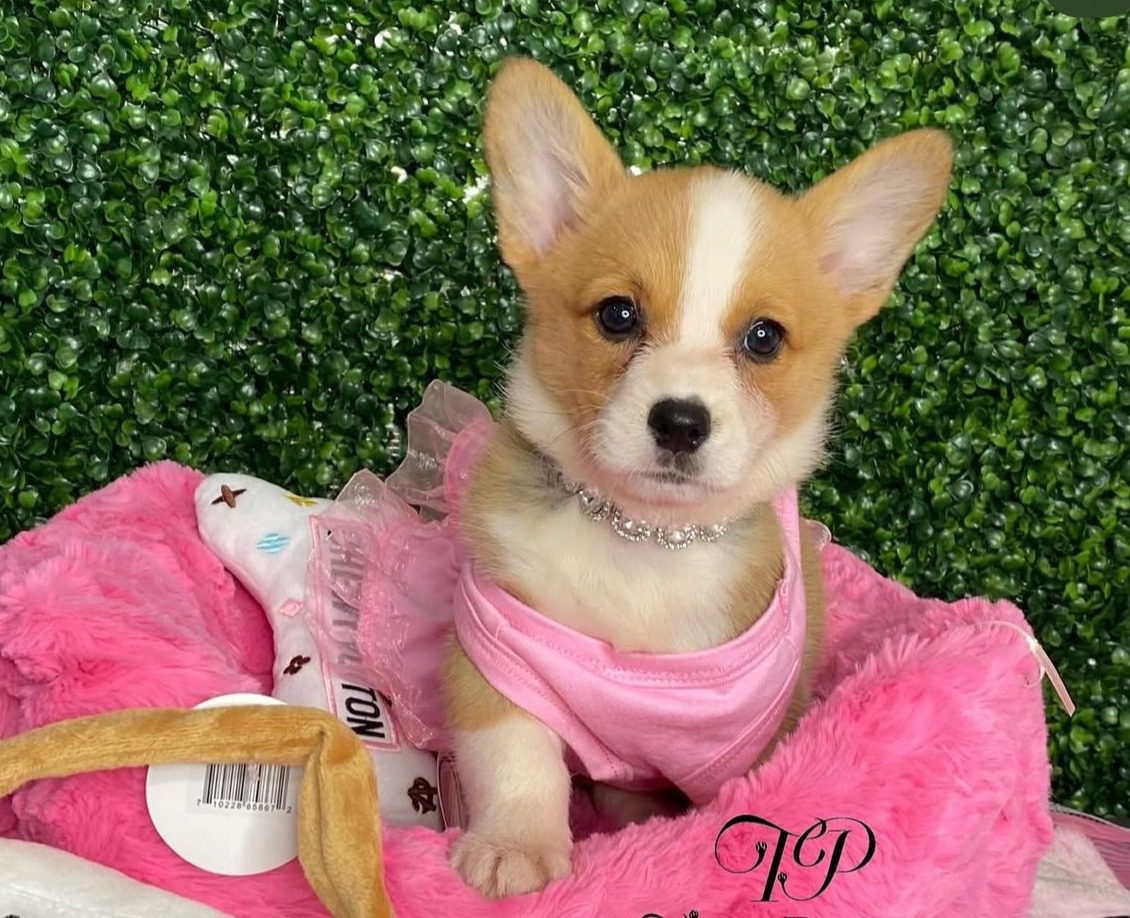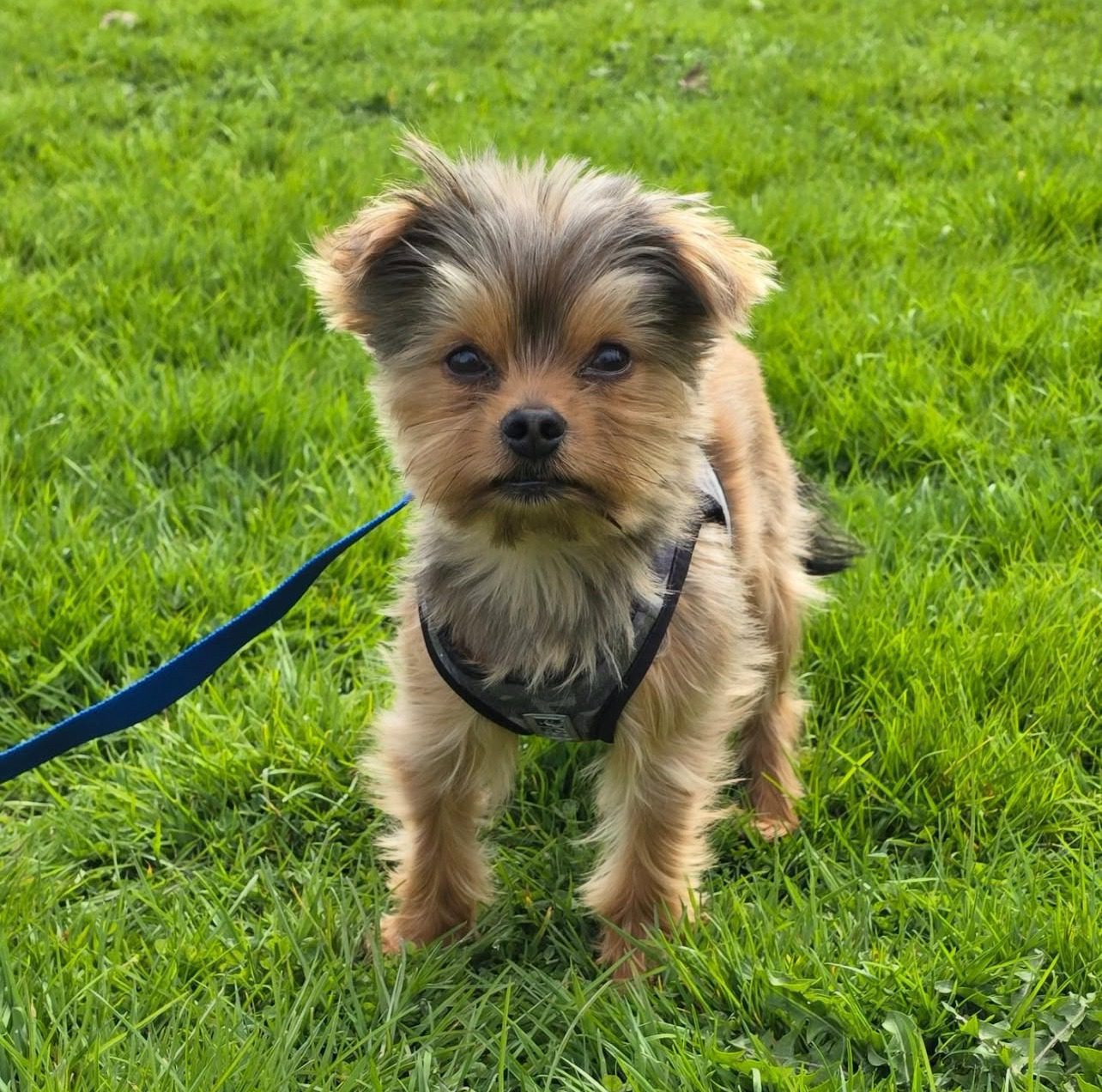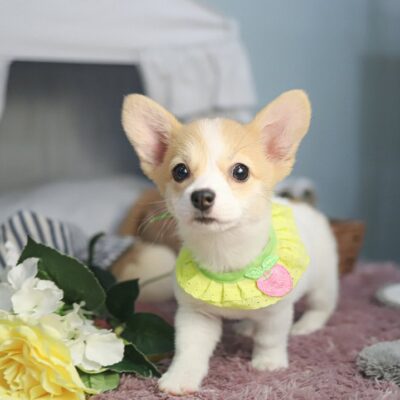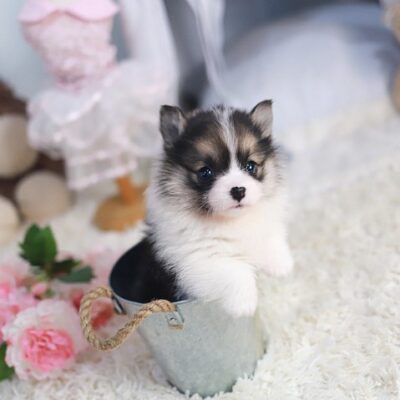About Addy
| Availability |
|
| Gender |
|
| Age | 11 Weeks |
| Transfer of Ownership | Full Transfer |
| Champion Bloodline | Companion Bloodlines |
| Vaccination | Complete Vaccination |
| Mode of Shipment | Air Shipping/Cargo |
| Rabies Shot | Completed |
| Deworming | Completed |
| Microchip | Implanted |
| Veterinary Health Certificate | Issued |
| Health Guarantee | Extended Health Guarantee |
| Estimated Adult Weight | 6.5 lbs |
To reserve Addy, a non-refundable $300 reservation fee is required. Secure your puppy today!
Reserve Addy Today
Why we’re the leading puppy adoption service
Your Perfect Puppy
Breeds in every size, color, and temperament
Certified Breeders
Licensed, vetted and committed to our puppies
10-Year Health Commitment
Certified documents, vaccinations, and checkups
Handle with Care Delivery
White glove delivery options to bring your puppy home
Caring Experts
Helping you every step to find your perfect puppy
Pembroke Welsh Corgi Breed Info
99% of breeding parents are OFA certified
Premium Teacup Puppies prioritizes health by ensuring that nearly all of their breeding parents (99%) are OFA certified, meaning each dog undergoes rigorous orthopedic evaluations to screen for hereditary issues before entering the breeding program. This proactive approach prevents potential health problems and supports the overall vitality of the breed, ultimately fostering healthier joints, happier lives, and stronger generations.

Puppy Parents with
CERTIFICATION

Puppy Parents with
GUARANTEE
Our Puppies come with 10 Year Health Guarantee
Health is at the heart of everything we do. That's why we offer a 10-year health guarantee on our puppies—a promise that goes beyond a simple policy. It reflects our commitment to long-term wellness, ensuring that every pup is backed by rigorous screenings and care long before any health issues arise. This guarantee is our proactive investment in a future where our puppies enjoy robust joints, vibrant lives, and the enduring vitality that supports strong generations.
Is ‘Teacup Corgi’ an actual, recognized breed? No, neither the Pembroke Welsh Corgi nor the Cardigan Welsh Corgi breed standards include a ‘teacup’ size. This term is used by breeders for Corgis deliberately bred to be significantly smaller than the standard, which raises health and ethical concerns.
How small is a ‘Teacup Corgi’ compared to a standard Corgi? Standard Corgis typically weigh 25-30 pounds. Puppies marketed as ‘teacup’ are usually aimed to be under 15-20 pounds, sometimes even smaller. Be aware that final size is not guaranteed and prioritizing extreme smallness over health is risky.
Do Teacup Corgis still have the characteristic Corgi personality? They may retain the intelligence, loyalty, and bossiness of standard Corgis. However, unethical breeding for size can sometimes lead to unstable temperaments, increased anxiety, or health issues that impact behavior. Their extreme fragility may also make them seem less bold.
What specific health risks are associated with breeding Corgis down to ‘teacup’ size? Beyond standard Corgi issues (like IVDD), miniaturization increases risks of hypoglycemia, hydrocephalus, heart defects, respiratory problems, liver shunts, and fragile bones. Their disproportionate body structure (long back, short legs) becomes even more precarious at a tiny size.
Are Teacup Corgis still prone to back problems (Intervertebral Disc Disease – IVDD)? Yes, potentially even more so. Their defining long back/short leg structure puts stress on the spine. Making the dog smaller doesn’t remove this genetic predisposition and may exacerbate fragility, making injury from jumps or falls more likely and potentially more severe.
How much exercise does a Teacup Corgi need, considering their small size but herding background? They need less intense exercise than standard Corgis but still require mental stimulation and moderate activity. Short, gentle walks and indoor play are best. Avoid high jumps or rough play due to their fragile build and back risks.
Do Teacup Corgis shed as much as standard Corgis? Yes, Corgis are double-coated dogs known for significant shedding (“Corgi glitter”). Being smaller doesn’t change the coat type, so expect regular, substantial shedding and the need for frequent brushing (several times a week).
Are Teacup Corgis suitable for homes with active children or large pets? Extreme caution is advised. Their small size and potential fragility (especially their backs) make them highly susceptible to accidental injury from boisterous children or larger animals. Supervision is absolutely mandatory.
What’s the typical price range for a puppy marketed as a ‘Teacup Corgi’? Prices are often inflated due to the “designer” label, potentially ranging from $2,000 to $5,000 or higher. High prices do not guarantee health; focus on breeder ethics and health testing over the “teacup” marketing.
Are Teacup Corgis known for being vocal or barky like standard Corgis? Yes, Corgis were bred to herd and alert, making them prone to barking. This trait is likely retained in smaller versions. Early training can help manage excessive barking.
Does being ‘teacup’ size affect a Corgi’s lifespan? It often does, negatively. The health complications associated with breeding for extreme smallness frequently lead to shorter lifespans compared to the standard Corgi’s 12-15 years. Responsible breeding prioritizes health for longevity.
Are Teacup Corgis intelligent and easy to train? Corgis are generally very intelligent, but can also be stubborn due to their herding background. Teacup versions likely retain this intelligence, but training requires patience and positive reinforcement. House training small dogs can sometimes take longer.
What are the specific feeding requirements for a Teacup Corgi puppy? They need high-quality small-breed puppy food. Due to their tiny size, they are highly prone to hypoglycemia (low blood sugar) and need frequent, small meals throughout the day, especially when young. Consult a vet for a specific feeding schedule.
Why is it hard to find a responsible breeder advertising ‘Teacup Corgis’? Responsible Corgi breeders adhere to the breed standard set by kennel clubs (like the PWCCA or CWCCA), which prioritizes health, temperament, and conformation within a specific size range. They avoid deliberately breeding undersized dogs due to the associated health risks and ethical concerns.
Do Teacup Corgis still exhibit herding behaviors like nipping at heels? It’s possible. The herding instinct is strong in Corgis. Even smaller versions might try to “herd” people or other pets, sometimes by nipping at ankles. Early training is needed to redirect this behavior appropriately.
How should I socialize a Teacup Corgi puppy safely? Early socialization is vital, but must be done carefully due to their fragility. Introduce them gently to calm, vaccinated adult dogs, different people, sights, and sounds in controlled environments. Avoid overwhelming situations or interactions with rough players (dogs or humans).
Can a Teacup Corgi adapt well to apartment living? Their smaller size can make them suitable for apartments, provided they get enough mental stimulation and appropriate exercise (short walks, indoor play). Their potential for barking should also be considered in close living quarters.
What kind of grooming commitment is needed for a Teacup Corgi’s coat? Expect the same commitment as for a standard Corgi. Regular brushing (multiple times per week, daily during shedding seasons) is essential to manage their thick double coat and control shedding. Occasional baths are also needed.
How do Teacup Corgis typically get along with other dogs or cats? With proper socialization from a young age, they can get along with other pets. However, their potential Corgi “bossiness” might still emerge, and supervision is needed, especially ensuring larger pets don’t accidentally injure the tiny Corgi.
Given the risks, what’s a better alternative to seeking a ‘Teacup Corgi’? Consider a standard Pembroke or Cardigan Welsh Corgi from a reputable breeder who health tests their dogs and breeds according to the standard. If size is the primary concern, look into naturally smaller, healthy companion breeds recognized by kennel clubs, ensuring you choose one whose energy level and temperament fit your lifestyle.

